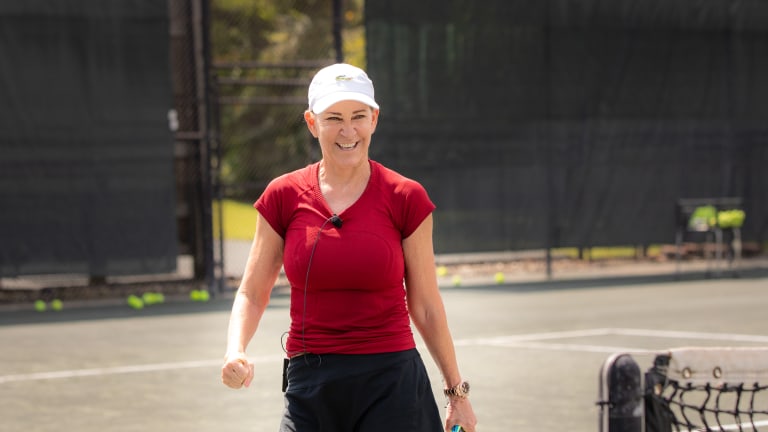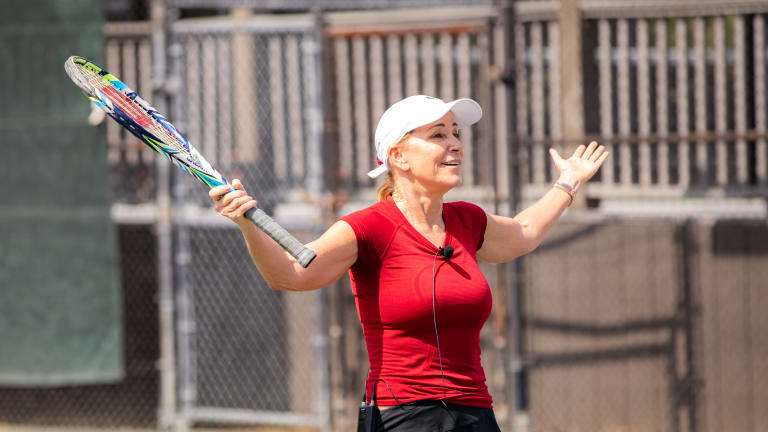She speaks truth, as she's known to do. Consider this: Virginia Wade, the 1968 US Open women's singles champ, famously said that she earned less prize money in winning that title than what today's first-round losers make in the same tournament.
In Indy, Evert spoke to not only the cause that catalyzed her return, and the local heat and humidity, but also to the meteorological and human-emotional patterns that took hold of the 2018 US Open in New York. This year in Queens, the extreme-heat rule came into play for dozens of matches of all disciplines, ages and abilities.
That's not to mention the heat that a trio of chair umpires took during the event, including, most infamously, Carlos Ramos, who oversaw the women's singles championship in which Serena Williams received three code violations for coaching and then racquet and verbal abuses.
"It was an unfortunate kind of scenario," Evert said. "It was like the perfect storm, and it escalated and escalated. And I think that Serena could've been a better sport about it, and I also think the umpire could've – since it was the finals of a Grand Slam – maybe given a few concessions, like lean over and say a soft warning like, 'I'm going to take a game away from you if you continue this verbal abuse.'"
Evert continued: "Everybody was at fault – and even the rules, the rules are so gray about coaching on court. It took away a little bit from Naomi, but at the end of the day she was the better player, and she was beating Serena at her own game, so it's her name on the trophy."


